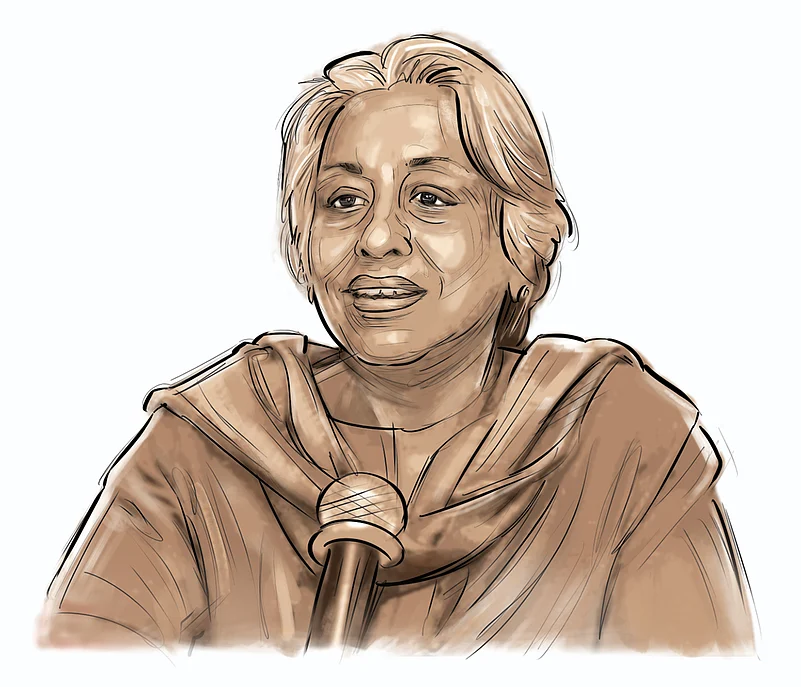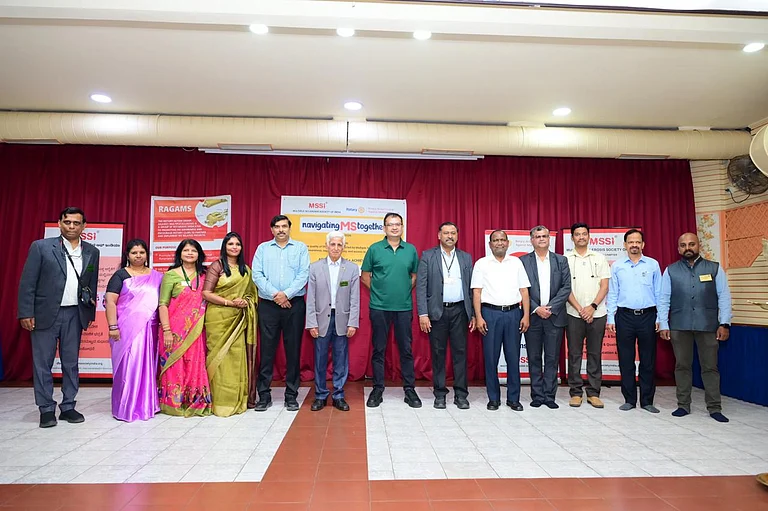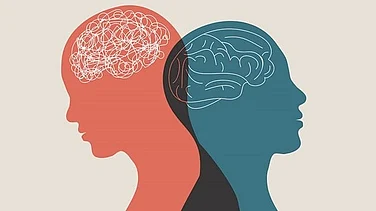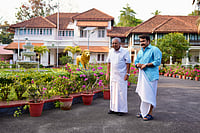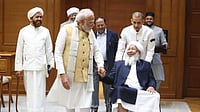
FACEMi is a pan Indian advocacy group, and not just a support group. The group aims for family carers to elevate their status from the primary level of care to the secondary level of care for their cause.
In the Mental Healthcare Act, 2017, Sections 21B and C provide for equality of treatment for psychiatric emergencies, on par with emergencies involving physical illnesses.
Mental illness is distinct; here, a person is diagnosed with a specific mental health condition. It is an illness. When you use the word interchangeably, the resources meant for the mentally ill will get diverted.
Tell us about FACEMi ?
We started FACEMi in 2015. Before that, I started the first self-help group, called AMEND, which is the Association for the Mentally Disabled. Then, in 2003, I started the Action for Mental Illness. It was purely a group to identify and categorise different action plans. FACEMi is a pan Indian advocacy group, and not just a support group. In this group, we aim for family carers to elevate their status from the primary level of care to the secondary level of care for their cause. This involves negotiating with the government to obtain optimal services in accordance with the rights guaranteed by law. We are collaborating with the government. What India needs is a family movement for quality care for the affected individuals.
What was your intention behind forming the Action for Mental Illness?
From my own experience and the experiences of several others, I realised that there is absolutely no support system for families. So, a self-help group is not enough. When no help is available, the problem within the family intensifies. So, I decided to start Action for Mental Illness. We identified four broad areas for advocacy: legal, political, media, and social (families included). Then, in response to my writ petition in 2005, the Supreme Court directed the Ministry of Health and Family Welfare to ensure my participation in all official meetings on mental health.
So, you are now focusing on government policies and the rights of families and patients?
Yes, of course, the thrust area is on government policies and legislations providing for the care and rights of Persons with Mental Illness (PMI). This approach is unique; ours is probably the only NGO in India that follows a rights-based advocacy model. It acts as a powerful tool to bring about changes in the family and at the macro level of the government. Our approach was to extend system-level support to families and persons with mental illness. Our hands have been strengthened with the passage of the Mental Healthcare Act, 2017. I was a member of the consultative committee that drafted the bill.
In the Mental Healthcare Act, 2017, Sections 21B and C provide for equality of treatment for psychiatric emergencies, on par with emergencies involving physical illnesses.
How different is your approach towards families of the mentally ill and mentally ill persons?
Some of the words that we use are specially framed to reflect our spirit of equality and dignity of the mentally ill persons. We don’t use the word ‘caregiver’ because we feel it creates a division within the family. I don’t do something because I am a ‘caregiver’; I do it because I am a mother, sister or father. The primary identity is that of a father, mother, or sister. When we use the word ‘family’, we use it in an inclusive sense; family encompasses everyone, regardless of their illness or disabilities. Even those afflicted by a mental illness provide care to others. If any family members want change, it has to start from within the family. Over the past two and a half decades, I have witnessed loved ones providing care in various ways. That is why we use the term ‘carers and loved ones’ and not ‘caregivers’.
Additionally, we don’t use the phrase ‘burden of the family’. If somebody is a burden, then that is not a family. This is a very negative word often used by some mental health professionals. It’s not a burden of care; it’s a responsibility of care.
You also make a differentiation between mental illness and mental health. How important is it in policymaking?
If you don’t distinguish between mental health and mental illnesses, resources would not be adequately deployed. Mental health is broader in coverage than mental illness and disorder.
Mental illness is distinct; here, a person is diagnosed with a specific mental health condition. It is an illness. When you use the word interchangeably, the resources meant for the mentally ill will get diverted. It is time we learn the difference and use them accordingly.
You have been working in this area for a considerable amount of time. What do you think is the greatest challenge―the treatment of the mentally ill or their rehabilitation?
Treatment is a challenge. According to the NIMHANS 2016 survey, the treatment gap in this country is 88-90 per cent. Only 10 per cent are getting treated. The question of rehabilitation comes next. The government has done well by enacting laws for treatment and rehabilitation. PMIs have the right to receive treatment under Section 18.1 of the Mental Healthcare Act, 2017. However, the rules must be implemented in the social reality in which we currently exist.
The treatment gap exists for several reasons, including a shortage of professionals to treat patients and the stigma existing in society. We at FACEMi believe that the majority of untreated persons live within their families. From my experience, I know that it takes two to three years for family members to take the person to a psychiatrist. This is more so in urban centres than in rural areas. Although they may not be able to afford private consultations, due to various community health programmes and community life, rural people often start treatment earlier than those from urban areas. Therefore, for many social and psychological reasons, early intervention does not occur in the majority of cases. Additionally, we have the problem of dropouts. These are individuals who take medication and discontinue it when they feel better. At times, even the family does not want to continue with the medication for various reasons. So, relapse occurs. FACEMi has now designed a programme called Doorstep Delivery of Psychiatric Services to provide treatment at one’s own home. It is called Assisted Home Care for Mental Illness (AHCMI). The Karnataka government has already adopted it, and NIMHANS is piloting it.
We have also launched an open-access software, ‘e-Kutumbh’, designed to monitor and regulate AHCMI. All our projects are formulated within the legal framework of the Rights of Persons with Disabilities Act, 2016 (RPWD), and the Mental Healthcare Act, 2017.
There are cases in which people are languishing in hospitals even after recovery, since the family is not interested in taking them back. How can society address this issue?
Suppose they are recovered completely, and the family is not willing to take them back, in that case, the rehabilitation must be ensured by the Disability Department, under the Ministry of Social Justice, by providing them with employment and housing. Persons who have recovered are entitled to a quota for jobs under the RPWD Act. Some supervised care is essential to ensure the safety and security of the persons.







